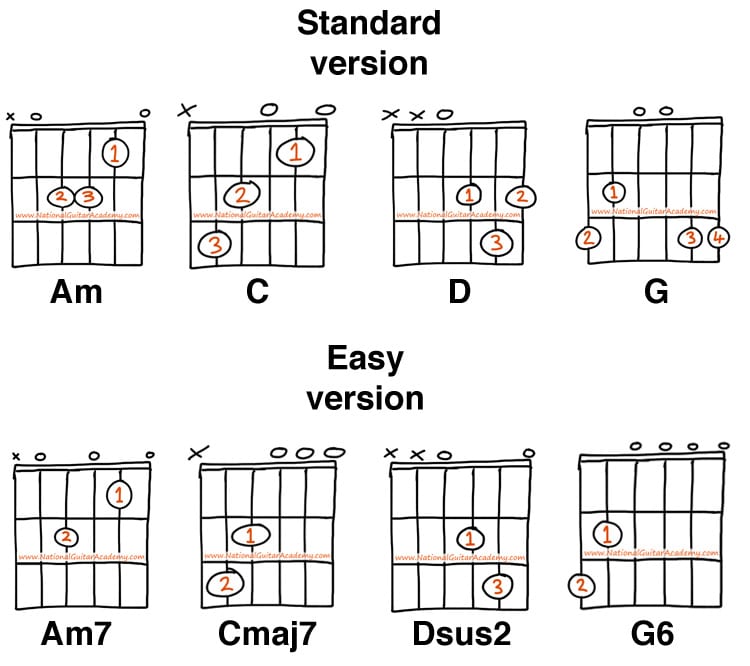
Over 100,000 guitar-learners get our world-class guitar tips & tutorials sent straight to their inbox: Click here to join them
Here’s a cool fact that most beginners who play the guitar don’t know: There is an easy version of EVERY chord .
This isn’t always clear to beginners which often means they try to tackle unsuitable chords. (It’s really not necessary, there are easy guitar chords that you should use to make things easier for yourself.)
I call these easy versions ‘stepping-stone’ chords, and they are a cornerstone of my teaching philosophy.
Stepping stone chords allow guitarists to progress quickly, have fun and increase their chances of successfully learning the guitar. There is no downside.
Here are 4 stepping-stone chord examples. These are basic guitar chords that most beginners can manage.

If you don’t understand what these chord diagrams mean, read this article:
How To Read Chordboxes In 60 Seconds
It’s important you understand that this is something that guitarists do all the time, not just beginners. We’re always trying different chord voicings from our vocabulary to see what sounds best.
Don’t see using stepping-stone chords as ‘cheating’. Using stepping-stone chords is a progress accelerator. While using them, you are developing your control and dexterity, all of which will help you tackle more difficult chords in the future.
Ok, let’s get into the main body of this guide and learn some easy chords .
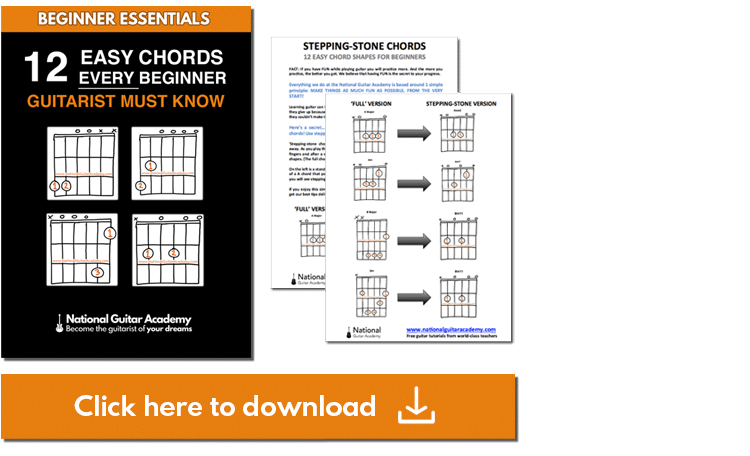
✅ Stop struggling. Start making music.
✅ Learn beginner-friendly versions of every chord .
This is our most popular guide and it will improve your chord ability quickly! 😎
Get a custom guitar-learning plan here: Click here for GuitarMetrics™
Learn from the world's best guitar educators: Click here for our guitar courses
‘A major’ is a chord that guitarists encounter early on in their guitar journey. It’s a common chord, and while it’s not super difficult to play, it does pose a challenge for a total beginner who would prefer to be playing easy guitar chords.
A major
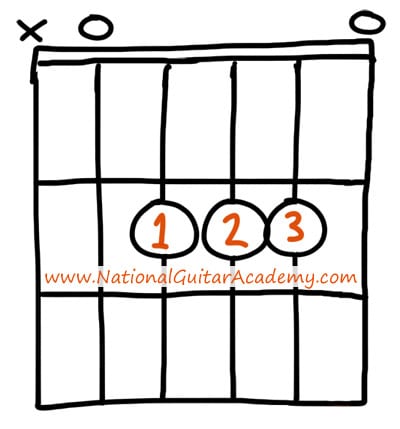
Squeezing three fingers into one fret can be fiddly for some people, especially people with chunky fingers. Even so, this is a major chord that we simply must be able to play because it’s so common. We need an easy alternative!
The version of A major that I teach all my students is Asus2. The guitar chord diagram looks like this:
Asus2
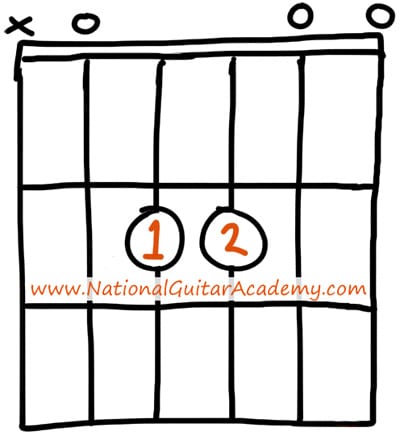
You can see that this is a much easier chord to play, it only requires two fingers, and they are bunched together in a way that is nice and compact. Easy chords don’t come much easier than this.
The only challenge here is strumming the chord without making contact with the sixth string (the thickest string). But don’t worry too much about missing that string out. To begin with, it’s far more important that you get comfortable holding the instrument and strumming.
(You can worry about finessing the chord voicing as you improve.)
You can learn more easy ways to play A major chord by reading this lesson:
3 Easy Ways To Play A

You’ll get a lot out of this article of ours: 10 Easy Songs For Beginners
Ok, let’s get back to our guitar chords chart.
‘A minor’ is another very common guitar chord. New guitarists need to be able to play this chord.
A minor chord isn’t very difficult to play, and most people can master it within a couple of weeks:
A minor
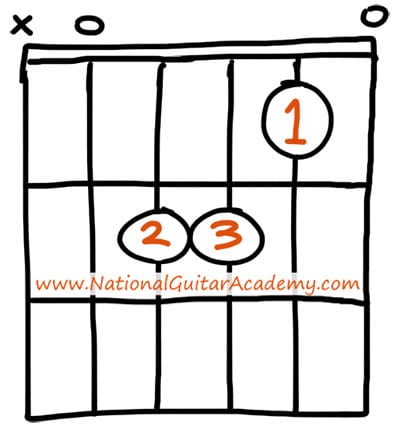
However, it does require three fingers to play, which means the difficulty level rises. An excellent version of A minor for guitarists is Am7. It looks like this:
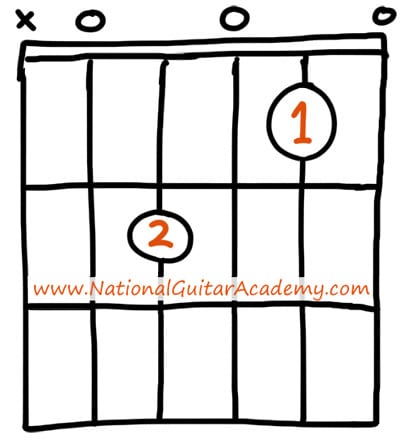
As you can see, this is only a two-finger chord, and as you will see later, this is a very similar chord shape to C major. For reasons that we won’t go into here, A minor and C major are very closely linked. (Those two major and minor chords crop up together all the time.)
Because of this, Am7 is an excellent bedfellow! Moving from C major to Am7 is very easy to do. (And vice versa.)
You can learn more easy ways to play Am by reading this lesson.
Get our best guitar tips & videos